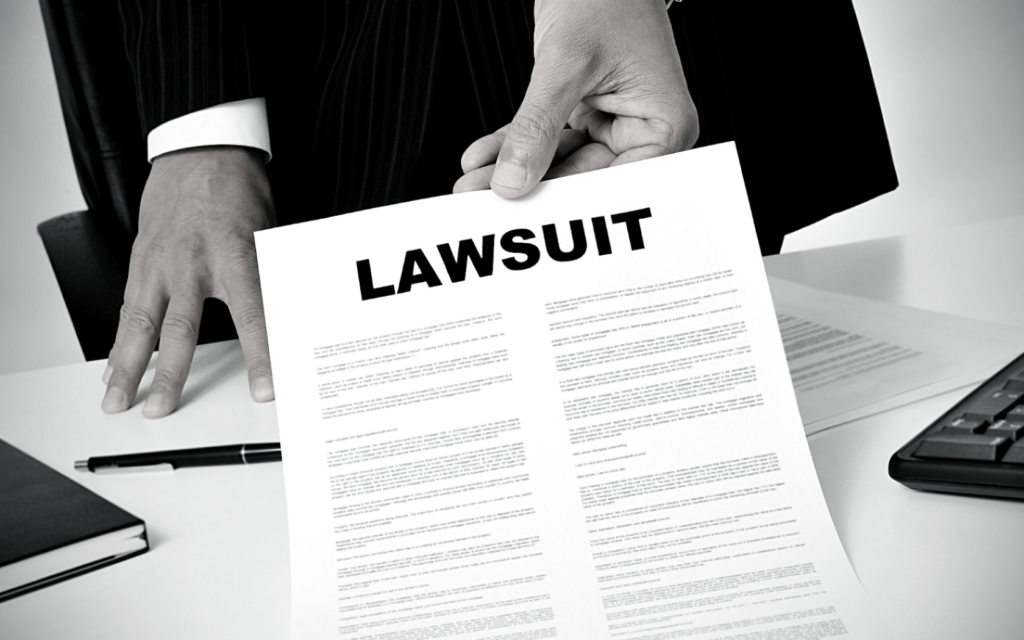Hospitals are full of doctors, patients, machines, and medicine. Do you know what else they can be full of? Infections. Everyone goes to the hospital hoping to get better. No one goes hoping they’ll become host to some free-loading infection. Sometimes a negligent doctor’s error is to blame. If it happens to you, you can file a hospital acquired infection (HAI) lawsuit with the help of an attorney experienced in this area.

Do I Have Grounds To File A Hospital Acquired Infection Lawsuit?
Did you (or a loved one) come down with an infection you definitely didn’t have before your hospital stay? Did it lead to permanent injury or wrongful death?
If so, you may have grounds to file a hospital acquired infection lawsuit. It’s not easy, but a hospital infection lawyer can smooth the path ahead.
Yes, infections lurk within a hospital’s walls. But that doesn’t mean the medical staff can’t keep them at bay. In fact, it’s their obligation. There are strict rules in place to prevent infections from spreading.
What kind of rules?
- There are specific procedures for washing instruments.
- Disinfection protocol for bed linens and hospital gowns.
- Doctors must follow their training for the correct insertion of catheters and central lines.
When a doctor, nurse, or someone on staff fails to follow protocol, that’s negligence. If you have proof of their errors, you may be able to sue for damages.
How Negligence Leads To Hospital Acquired Infections
Generally, the longer you stay at a hospital, the more at risk you are of acquiring an infection. Older patients and those with compromised immune systems have a greater risk as well. But that doesn’t mean that hospital staff gets a free pass when people in those circumstances fall ill.
Here are some possible causes of hospital acquired infections. Some may stem from negligence:
- Poor sanitary conditions
- Overcrowded hospital
- Treatment using invasive devices like a catheter or central line
- Exposed surgical sites
- Ventilator contamination
- Overusing antibiotics
- Skin-to-skin contact (being doctor and patient, for example)
These are the most common types of hospital acquired infections:
- Ventilator-associated pneumonia (VAP)
- Staph infections
- Surgical site infections (SSIs)
- Skin infections, especially at the site of a catheter
- Lower intestinal infections
- MRSA infections
- Clostridium difficile infections
- Central line infections
- Urinary tract infections (often catheter-associated)
Now that we’ve covered infections commonly acquired in hospitals and their causes, let’s discuss how they’re mishandled.
Hospitals Can Mishandle Infections
Most of the time, hospitals catch infections right away. With proper monitoring and treatment, patients can recover without permanent injury. But sometimes doctors ignore an infection (or ignore the warning signs). That opens Pandora’s box, so to speak. The infection may have the chance to grow and wreak havoc on the patient’s body.
Next, the patient may become septic. This is when bacteria invades the bloodstream. It’s an emergency situation. The patient can have an elevated heart rate, low blood pressure, and shortness of breath. Their health may deteriorate quickly, before doctors can treat them with antibiotics and fluids. Many patients never recover, and pass away from septic shock.
Many families have filed hospital acquired infection lawsuits because their loved one died from septic shock. It’s not an easy path to take. Hospitals and their insurance companies try to disprove a patient’s claim at every turn. This is why hospital infection lawyers are necessary. They help patients uncover who was at fault— and prove it.
Negligent Or Not?
When filing a hospital acquired infection lawsuit, you must first show evidence that you had an infection. Then you’ll pinpoint how the hospital’s negligence led to infection.
What if your infection wasn’t the result of negligence? (Or you’re unsure if it was?) Not every infection is the result of someone’s mistake. But you can also file a hospital acquired infection lawsuit if the hospital mishandled how they treated your infection.
In your hospital acquired infection lawsuit, you might show that medical staff was negligent in one or more of the following ways:
- Failing to test the patient for infections.
- Not monitoring the patient correctly, or at all.
- Failing to treat the infection
- Sending the patient home with an infection and without treatment

How To Hire A Hospital Infection Lawyer
Why do you need a hospital infection lawyer? Truth is, medical malpractice cases are complicated. Filing a claim against hospitals, doctors, and their insurance companies can cost a lot of time and effort.
But a hospital infection lawyer specializes in these types of cases. They know what it takes to obtain settlements and win at trial. They can at times help you obtain medical records much faster than you could yourself. In addition, they have access to medical experts who can provide testimony at trial if needed. Expert testimony can help prove that a doctor’s negligence caused or aggravated your infection.
Here’s how to hire a hospital infection lawyer:
- First, contact a medical malpractice firm in your state.
- Ask if they have experience with hospital acquired infection lawsuits.
- Inquire about fees. It’s best to hire a hospital infection lawyer that charges on a contingency fee basis. That way, you won’t owe them anything unless they win your case.
- Schedule a free consultation.
Hampton & King is a medical malpractice firm with 60+ years of experience, serving clients in Texas. If you’d like to speak with a hospital infection lawyer, contact us here. We’ll set up an initial consultation at no cost to you.




